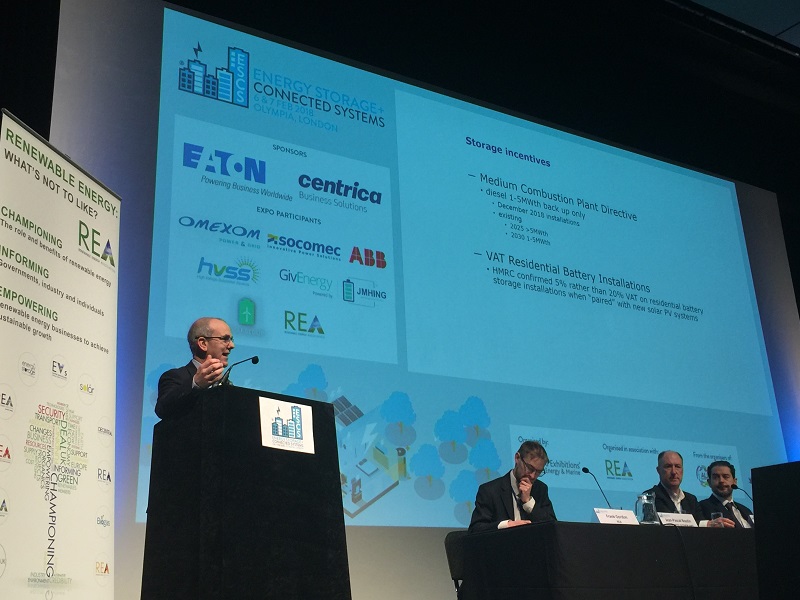The International Finance Corporation (IFC), which is a member of the World Bank and provides financing for projects in developing countries, is well known for its Scaling Solar program.
Scaling Solar is a “one stop shop” scheme, which helps privately funded grid-connected solar PV projects undertake an initial legal, regulatory and technical analysis; prepares and runs the tender for the projects; and helps these projects achieve financial close.
Recently, there has been discussion over whether the Scaling Solar program should expand to also include energy storage.
Jean-Pascal Boutin, partner at Eversheds Sutherland, a global law firm specializing in the area of energy infrastructure and regulation, told the Energy Storage Connected Systems (ESCS) conference, held in London, the U.K. this week, that the IFC and the World Bank “have been running their Scaling Solar program and they just announced they are going to combine storage in to that program as well, so we will be seeing, especially in Africa, storage included in their program.”
Boutin’s presentation at the conference was reviewing the latest energy storage developments in the U.K. and internationally.
The IFC has not formally announced that it is including energy storage in the Scaling Solar program. However, Eversheds Sutherland tends to be well informed regarding forthcoming developments related to the bank.
Recent developments
Popular content
Boutin’s remarks do not come as a major surprise. In June, Yasser Charafi, principal investment officer at the IFC, told the Africa Energy Forum in Copenhagen, Denmark, that the IFC was working towards the development of the first large-scale grid-connected battery storage project in Africa. He declined to provide further details, however.
Then on January 31, the IFC and the government of Canada announced that they “have formed a blended finance partnership that will use public funds to unlock larger amounts of private sector investments to expand renewable energy in Sub-Saharan Africa.”
Commenting on the partnership, IFC CEO Philippe Le Houérou said that there is “significant potential for additional economic and development gains in new areas like energy storage and off-grid solar.”
Boutin also referred to off-grid energy storage, saying that Eversheds Sutherland sees such development in the Middle East and Africa, where customers currently rely heavily on diesel, and are working towards an alternative of solar PV combined with battery storage.
He added that his firm is undertaking a project in Saudi Arabia and that he knows of telecom companies that are considering similar projects in Nigeria and elsewhere.
This content is protected by copyright and may not be reused. If you want to cooperate with us and would like to reuse some of our content, please contact: editors@pv-magazine.com.


1 comment
By submitting this form you agree to pv magazine using your data for the purposes of publishing your comment.
Your personal data will only be disclosed or otherwise transmitted to third parties for the purposes of spam filtering or if this is necessary for technical maintenance of the website. Any other transfer to third parties will not take place unless this is justified on the basis of applicable data protection regulations or if pv magazine is legally obliged to do so.
You may revoke this consent at any time with effect for the future, in which case your personal data will be deleted immediately. Otherwise, your data will be deleted if pv magazine has processed your request or the purpose of data storage is fulfilled.
Further information on data privacy can be found in our Data Protection Policy.